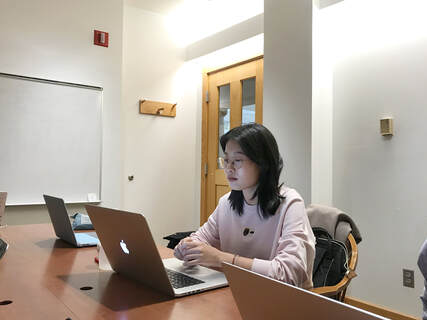|
International students from China, who make up the largest group among international students in the United States, often feel that their mental well-being is not being addressed. Meanwhile, very few of them have sought professional help. According to a study released by Yale University, about 45 percent of the Chinese international students on its campus reported symptoms of depression. On the other hand, a study from the American Counseling Association shows that although positive help-seeking attitudes were reported, few Chinese international students who responded to the study chose professional services to deal with emotional distress. Ella Liu, a Chinese international student majoring in education at the University of Illinois at Urbana-Champaign, is one of those students who have suffered mental distress. “It felt like no one supported me.” she said, “I couldn’t sleep for a year, and I would cry all day long. I just felt exhausted.” Liu has struggled with depression since high school. Trying to balance school work and expectations from both of her parents, as well as herself, was extremely challenging. Add in the relationship between her and her friends becoming fragile, rendered her situation even worse. Like lots of other students, Liu has never formally sought help from any counselor or therapist. Instead, she has tried to resolve her issues on her own, and for a good reason. “It will be hard to communicate with someone whose first-language is not Mandarin. Without a similar cultural background, they cannot easily understand and relate to your concerns.” She said. Zijin Hou, a counseling psychology professor at Beijing Normal University thinks that understanding the specific cultural background is important in the process of mental illness treatment. “Culture plays a significant role in influencing how people think, feel and behave.” said Professor Hou, “Understanding cultural diversity is crucial for clinical psychologists to better understand people’s minds and to provide a more targeted and effective assessment and treatment.” Fortunately, a growing student organization at UIUC is trying to help the situation among the university’s students who come from China. Runze Chen, a Chinese student majoring in psychology and the president of the Conch Shell Mental Support, saw the imbalance between the special needs among Chinese international students and the ineffectiveness of the resources on campus. Because of Chen’s major, many of her friends have told her about their experience with the University Counseling Center as well as McKinley Health Center. Besides the fact that there are very limited number of counselors and therapists on campus, the students often ended up getting little effect on their mental health concerns because of the cultural and language differences. Chen saw the mental needs of these students, which were different from that of domestic students due to their cultural background and which never received enough attention. That became the reason why she founded Conch Shell Mental Support, the first registered student organization at UIUC which specifically focuses on the mental well-being of Chinese international students. Most of the organization’s works are based on WeChat, the biggest social media app among Chinese students. Most of their activities include regular mental-health-related online articles, the online communication platform, as well as in-person group meetings and talks. Until now, the number of subscribers of the organization’s official account on WeChat has amounted to 1573. “I hope that with all the resources offered by us, Chinese students can have a place to talk whenever they feel the need and without the concern of cultural and language barriers.” Said Chen. Having the similar intention with Chen, Ella Liu joined the organization this semester, hoping to help Chinese students who are struggling with similar issues she once had. “I know how struggling it is for someone who has mental issues, and I have experienced all those negative emotions and feelings before.” As a member of the advertising department of the organization, Liu strives to make the organization more closely connected to the students with her art & design skills. She is responsible for the visual design of the online articles as well as advertising posters on WeChat.
There is a lot more that Liu wants to achieve in the organization. In the future, she hopes to be a part of the organization’s online communication platform, where the members listen to mental health concerns sent from students and offer their advice on a one-on-one basis. “I feel happy to interact with people who share the same passion with me and who also want to help others.” Liu said. By sharing her experience with more students who are in need of help, Liu hopes to raise mental health awareness among Chinese international students. She said, “This is what my passion is. I want to make more people involved in our organization and more mental needs addressed with my own ability.”
7 Comments
|
AuthorYuhan Ma ArchivesCategories |
- Home
-
Articles
- Breaking Down Mental Illiness
- Aggregation
- Overcoming Domestic Abuse
- Children and Media
- The Continuous Fight for a Transformed University
- Not Everyone is Born Equal
- COPING WITH RACE-RELATED STRESS
- Stress Tips
- Diversity Qualifications
- When Girls Go For It...
- Untouched Topics of Domestic Violence
- The Human Library
- Selective Sympathy for Terrorism
- From Margin to Center
- Freedom of Speech = Safe Space? >
- Thank God It's Natural CEO Chris-Tia Donaldson
- Young Voices
- Features
- Podcasts
- Resources
- Custody Battle Ground: Kansas Kids
|
Some names and identifying details have been changed to protect the privacy of the individuals and their families. ACE, Active Centralized Empowerment and Inc. cannot be used without the written permission from Dr. Janice Marie Collins.
|


 RSS Feed
RSS Feed